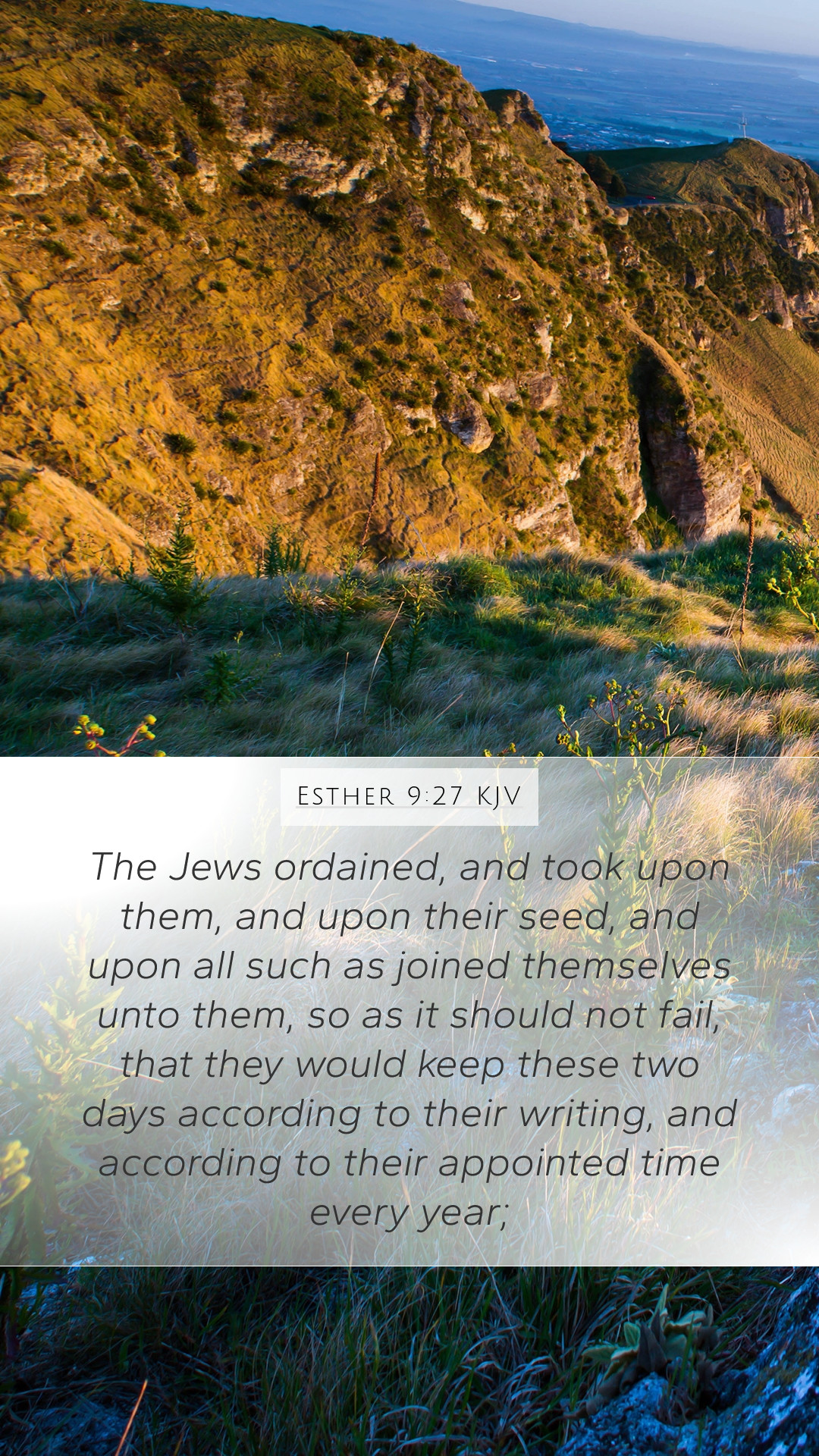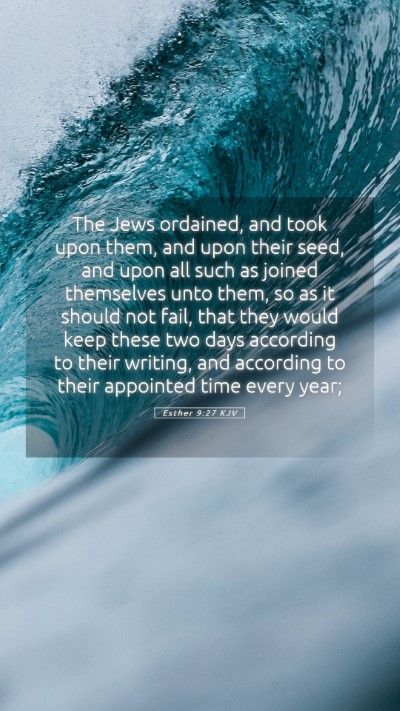Meaning of Esther 9:27
Esther 9:27 states: "The Jews established and took upon them, and upon their seed, and upon all such as joined themselves unto them, so as it should not fail, that they would keep these two days according to their writing, and according to their appointed time every year." This verse encapsulates the dedication of the Jewish people to commemorate their deliverance from oppression, emphasizing both the historical and spiritual significance of their survival.
Contextual Background
To understand Esther 9:27, one must consider the historical context of the Book of Esther. The narrative revolves around the Jews in Persia facing annihilation due to Haman's plot, which was ultimately thwarted by Esther's intervention. The events highlighted in this chapter confirm the establishment of the festival of Purim, commemorating their deliverance.
Commentary Insights
-
Matthew Henry's Commentary:
Henry emphasizes that the establishment of the festival signifies the importance of remembering God's intervention in dire circumstances. He notes that this observance was not just for the current generation but also for future descendants, highlighting the theme of faithfulness and legacy.
-
Albert Barnes' Notes:
Barnes reflects on the necessity of remembering God's deliverance through established traditions and practices. He notes that this verse serves as a commitment to observe and honor the memory of their deliverance, reinforcing the communal aspect of faith and identity among the Jewish people.
-
Adam Clarke's Commentary:
Clarke interprets the commitment made in this verse as an important step for the Jewish people to ensure that the acts of divine deliverance are perpetually remembered. He stresses the idea that this agreement binds generations together in a shared history of survival, gratitude, and worship.
Biblical Exegesis
This verse can be understood through the lens of biblical exegesis, which highlights the significance of remembering pivotal moments in salvation history. The annual celebration underscores the importance of tradition in the Jewish faith and serves as a powerful reminder of God’s faithfulness.
Application and Relevance
Esther 9:27 encourages believers today to reflect on their own histories and the ways in which divine intervention has played a role in their lives. It illustrates the importance of establishing practices that allow future generations to remember and celebrate God's providence and deliverance.
Relevant Cross References
- Exodus 12:14: "This day shall be for you a memorial..." - Focus on commemorating God's deliverance.
- Deuteronomy 6:7: "You shall teach them diligently to your children..." - Emphasizing the passing down of faith and traditions.
- Psalm 78:4: "We will not hide them from their children..." - The importance of sharing God's deeds.
Conclusion
In summary, Esther 9:27 exemplifies the Jewish commitment to remembering their deliverance through the observance of Purim. Through various commentaries, we see that this verse serves not only as a historical reminder but also as a spiritual challenge for believers to recognize and commemorate divine faithfulness in their lives and communities.
SEO Keywords
The content presented above can be enhanced through the use of strategic SEO keywords such as Bible verse meanings, Bible verse interpretations, Bible verse understanding, Bible verse explanations, and Scripture analysis. Such keywords will assist those searching for in-depth Bible verse analysis and insights into the historical context of Bible verses.


